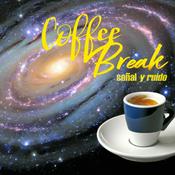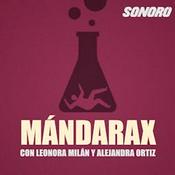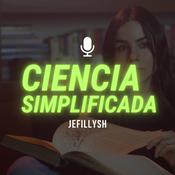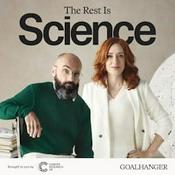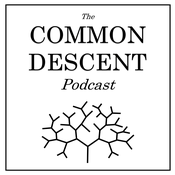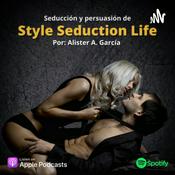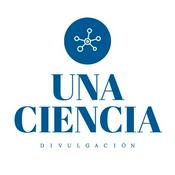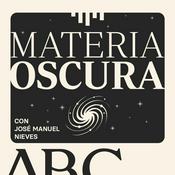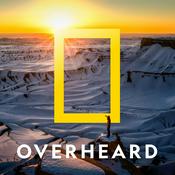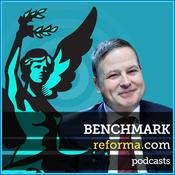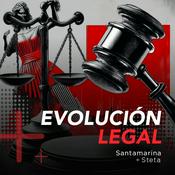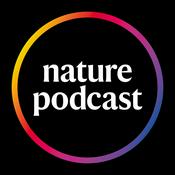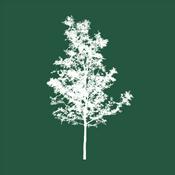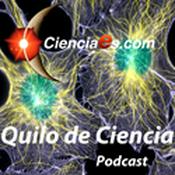Episodios disponibles
5 de 48
- ZSL #049 The forest behind your floorboardsDo you know where the wood in your floorboards comes from? Or your desk, or dining chairs? In this episode, we dig deep into the grain of a global issue that is often hidden in plain sight in our offices, our houses and our cities – tracing timber back to its source. Harriet talks to Annabelle Dodson, ZSL's Sustainable Business Project Manager, and Victor Deklerck, Director of Science at World Forest ID, about how scientists use isotopes to pinpoint where the trees behind our wood products were grown, the role of digital tracking systems in supply chains, and real-world cases where traceability has driven more responsible sourcing and enforcement. This project is funded by Fondation Lombard Odier and the EU through the ECO-SOLVE project. This episode is part of a series showcasing ZSL's Sustainable Business and Finance work. Please note that this podcast was recorded before the European Commission confirmed changes to the implementation timeline of the EU Deforestation Regulation (EUDR). Compliance requirements for micro and small enterprises have been delayed to 30 December 2026 (previously June 2026), while medium and large enterprises must still comply by 30 December 2025. Overview 00:14 Harriet McAra, Host of Wild Science, Episode introduction 02:10 Annabelle Dodson, Sustainable Business Project Manager, ZSL 03:19 How does illegal timber enter supply chains, and how does traceability help? 05:17 ZSL Cameroon and World Forest ID 07:50 Victor Deklerck, Director of Science, World Forest ID 09:06 From chemical fingerprints to final verification 12:36 Implications for industry 17:05 The future of supply chain transparency 19:21 What can consumers and companies do to support traceability? 20:40 Harriet McAra, summary and outro Resources If there's a topic you'd like to hear on a future podcast, or if you'd like to share your thoughts, email the ZSL Wild Science Podcast at: [email protected] Check out our science and conservation work at: www.zsl.org/Science or www.zsl.org/conservation Read more about the project: www.zsl.org/news-and-events/feature/responsible-sourcing-africa World Forest ID: https://worldforestid.org/ The Alliance for Wood ID Testing: https://worldforestid.org/insights/partnership-with-wwf ZSL SPOTT'S ESG policy transparency assessments of timber and pulp companies: https://www.spott.org/timber-pulp/ Free training materials on forest-driven commodities: https://www.spott.org/training-hub/ Help keep SPOTT going. Without continued funding, these assessments can't continue. Donate today at https://donate.zsl.org/spott/ or email [email protected] Find out more about ZSL's Sustainable Business and Finance team: https://www.zsl.org/what-we-do/working-with-business Get in touch Email [email protected] with your questions, comments, and thoughts for future episodes! Find us @ZSLScience on X or @zslofficial.bsky.social on BlueSky and use the hashtag #ZSLWildScience Follow us on Facebook @ZSLScienceAndConservation Email [email protected] for questions about SPOTT assessments, methodology, or partnership. Follow SPOTT on LinkedIn @ZSL SPOTT, X @zslspott or BlueSky @zslspott.bsky.social ZSL's Sustainable Business and Finance team offers advisory services to help companies and investors take practical, science-based action for nature. Get in touch: https://www.zsl.org/what-we-do/working-with-business/advisory-services--------21:31
- ZSL #048 The rubber story and the road to sustainabilityWhat do car tyres, yoga mats and trainers have in common? They all contain natural rubber, tapped from trees by millions of small farmers, mostly in Asia. While natural rubber production is renewable, its impact on the environment through deforestation, habitat loss and soil degradation, can be great when not managed sustainably. In this episode, we hear from a Thai rubber farmer, about the challenges faced on the ground, as well as one of the world's biggest tyre makers, Michelin, about rubber's colonial history, its tangled supply chains, and how they're working with farmers on sustainability. Finally, we explore how investors can use their influence to demand better practices and drive industry-wide change that benefits both people and nature. This episode is part of a series showcasing ZSL's Sustainable Business and Finance work. Overview 00:15 Harriet McAra, Host of Wild Science, and Rachel Poluan, ZSL SPOTT Team: Episode introduction 02:58 Introduction to the natural rubber sector and how rubber is produced 07:30 Edouard De Rostolan, Michelin: The historical legacy of rubber production and supply chains 12:54 Exploring ESG risks and opportunities 23:52 Khun Soontorn, a rubber smallholder in Thailand: A smallholder perspective 32:04 Agroforestry and the environmental aspects of rubber farms 41:38 Joe Horrocks Taylor, Columbia Threadneedle: How can investors and buyers affect change? 1:02:15 Rachel Poluan, summary and outro Resources If there's a topic you'd like to hear on a future podcast, or if you'd like to share your thoughts, email the ZSL Wild Science Podcast at: [email protected] Check out our science and conservation work at: www.zsl.org/Science or www.zsl.org/conservation SPOTT: https://www.spott.org/ Natural rubber: SPOTT'S ESG policy transparency assessments: https://www.spott.org/natural-rubber/ SPOTT training hub: https://www.spott.org/training-hub/ Help keep SPOTT going. Without continued funding, these assessments can't continue. Donate today at https://donate.zsl.org/spott/ or email [email protected] Find out more about ZSL's Sustainable Business and Finance team: https://www.zsl.org/what-we-do/working-with-business Get in touch Email [email protected] with your questions, comments, and thoughts for future episodes! Find us @ZSLScience on X or @zslofficial.bsky.social on BlueSky and use the hashtag #ZSLWildScience Follow us on Facebook @ZSLScienceAndConservation Email [email protected] for questions about SPOTT assessments, methodology, or partnership. Follow SPOTT on LinkedIn @ZSL SPOTT, X @zslspott or BlueSky @zslspott.bsky.social ZSL's Sustainable Business and Finance team offers advisory services to help companies and investors take practical, science-based action for nature. Get in touch: https://www.zsl.org/what-we-do/working-with-business/advisory-services--------1:04:06
- ZSL #047 Shark Tales of North WalesThe coastal waters of Wales are home to a whopping 27 species of sharks, skates and rays, known collectively as elasmobranchs, and they are a fundamental part of Wales' natural heritage. But even so, research on their biology and conservation status is lacking. In this episode, Wild Science hits the road to join scientists from Project SIARC and the Ocean Predator Lab in North Wales as they work with local fishing communities to monitor tope sharks, and contribute to better understanding and conservation of shark species in the region. Overview 00:11 Harriet McAra, Host of Wild Science, Episode introduction 01:26 Welcome to Pwllheli 03:13 Interview with David Curnick, Research Fellow, Institute of Zoology, ZSL and Head of the Ocean Predator Lab 06:18 How to tag a tope shark 12:44 Interview with Daniel Montgomery, Postdoctoral Research Assistant, Institute of Zoology, ZSL 18:44 Interview with Jake Davies, Project SIARC Technical Specialist, ZSL and Natural Resources Wales 22:57 Outro and final reflections Resources If there's a topic you'd like to hear on a future podcast, or if you'd like to share your thoughts, email the ZSL Wild Science Podcast at: [email protected] Check out our science and conservation work at: www.zsl.org/Science or www.zsl.org/conservation Project SIARC: https://www.zsl.org/what-we-do/projects/project-siarc Ocean Predator Lab: https://www.oceanpredatorlab.com/ David Curnick: https://www.zsl.org/about-zsl/our-people/david-curnick A fisher's perspective: Using half a century of local fisher knowledge to identify socio-economic, ecological and legislative trends influencing angelshark (Squatina squatina) records in Wales: https://besjournals.onlinelibrary.wiley.com/doi/10.1002/pan3.70044 Get in touch Email [email protected] with your questions, comments, and thoughts for future episodes! Find us @ZSLScience on X or @zslofficial.bsky.social on BlueSky and use the hashtag #ZSLWildScience Follow us on Facebook @ZSLScienceAndConservation--------24:33
- ZSL #046 Feeding the Zoo: Nutrition for animals under managed careMaking sure that the animals held in ZSL's two conservation zoos, London and Whipsnade, are fed a diet that can help them thrive is crucial, both for keeping them healthy under managed care, and ensuring they are in the best possible shape for a return to the wild. Amanda Ferguson is ZSL's Diet Management Officer and is responsible for creating tailored diets for all the animals across both ZSL Zoos, from snails to elephants! We learn how to feed an animal for which there are no guidelines, why enriched feeding methods are so important, and why you'll rarely see a monkey at London Zoo with a banana. Overview 00:11 Harriet McAra, Host of Wild Science, Episode introduction 01:10 Interview with Amanda Ferguson 25:16 How does nutrition help us recover wild populations? 33:04 Outro and final reflections Resources If there's a topic you'd like to hear on a future podcast, or if you'd like to share your thoughts, email the ZSL Wild Science Podcast at: [email protected] Check out our science and conservation work at: www.zsl.org/Science or www.zsl.org/conservation The Evolution of Enrichment, a public event held at ZSL featuring a talk from Amanda Ferguson on how diet presentation can meet the behavioural needs of animals: https://www.youtube.com/watch?v=-Hqrweox2UA Amanda Ferguson: https://www.researchgate.net/profile/Amanda-Ferguson-9 Corncrake conservation: https://www.zsl.org/what-we-do/projects/conserving-native-birds Mountain chicken frog conservation: https://www.zsl.org/what-we-do/projects/mountain-chicken-frog-conservation Comparison of the nutritional content of the captive and wild diets of the critically endangered mountain chicken frog (Leptodactylus fallax) to improve its captive husbandry https://pubmed.ncbi.nlm.nih.gov/30221785/ Get in touch Email [email protected] with your questions, comments, and thoughts for future episodes! Find us @ZSLScience on X or @zslofficial.bsky.social on BlueSky and use the hashtag #ZSLWildScience Follow us on Facebook @ZSLScienceAndConservation--------33:42
- ZSL #045 BONUS Nature's Negotiators: Saving the planet one meeting at a timeAfter our Nature's Negotiators miniseries, where we learned all about the complexities, challenges and importance of United Nations climate and biodiversity meetings, we wanted to give the gift of a bonus episode to round things off! We catch up with Bethan to hear how things went after she attended COP29, United Nations Climate Change Conference, in Azerbaijan. Overview 00:11 Harriet McAra, Host of Wild Science, Episode introduction 00:54 Bethan Laughlin, ZSL's Senior Policy Specialist, on how the finance negotiations at COP29 played out 06:37 Bethan on the strength of language used in texts agreed at COP29, and how that came to be 10:38 Bethan on the accuracy of the portrayal of COP29 in the media 12:38 The other themes discussed at COP29 14:04 What can be expected at the next climate COP in Belem, Brazil 16:17 Outro Resources If there's a topic you'd like to hear on a future podcast, or if you'd like to share your thoughts, email the ZSL Wild Science Podcast at: [email protected] Check out our science and conservation work at: www.zsl.org/Science or www.zsl.org/conservation Bethan Laughlin: https://www.zsl.org/about-zsl/our-people/bethan-laughlin ZSL's United Nations and Intergovernmental Policy Engagement: https://www.zsl.org/what-we-do/conservation/creating-change/informing-policy/united-nations-and-intergovernmental-engagement ZSL's COP16 position statement: https://cms.zsl.org/sites/default/files/2024-10/CBD%20COP16%20Key%20Asks%20-%20October%202024.pdf "Negotiations ran out of time, but action on biodiversity loss cannot be postponed…" Blog written by Georgina Chandler: https://www.zsl.org/news-and-events/feature/cbd-cop16-negotiations-ran-out-time-action-biodiversity-loss-cannot-be Get in touch Email [email protected] with your questions, comments, and thoughts for future episodes! Tweet us @ZSLScience with the hashtag #ZSLWildScience Follow us on Facebook @ZSLScienceAndConservation--------16:59
Más podcasts de Ciencias
Podcasts a la moda de Ciencias
Acerca de ZSL Wild Science Podcast
Delve into topical issues in zoology, conservation and the environment, from saving species and protecting the planet, to finding out about the animals living across the globe, including in London's own river Thames. Learn more about the science behind the conservation work being done by ZSL and others, in this podcast from ZSL's Institute of Zoology. Hosted previously by Dr Monni Böhm and Ellie Darbey, and now by Harriet McAra.
Sitio web del podcastEscucha ZSL Wild Science Podcast, Coffee Break: Señal y Ruido y muchos más podcasts de todo el mundo con la aplicación de radio.net
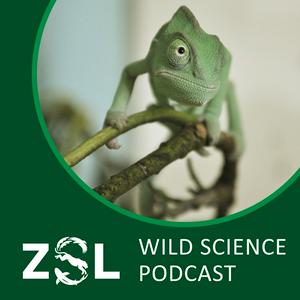
Descarga la app gratuita: radio.net
- Añadir radios y podcasts a favoritos
- Transmisión por Wi-Fi y Bluetooth
- Carplay & Android Auto compatible
- Muchas otras funciones de la app
Descarga la app gratuita: radio.net
- Añadir radios y podcasts a favoritos
- Transmisión por Wi-Fi y Bluetooth
- Carplay & Android Auto compatible
- Muchas otras funciones de la app


ZSL Wild Science Podcast
Escanea el código,
Descarga la app,
Escucha.
Descarga la app,
Escucha.
